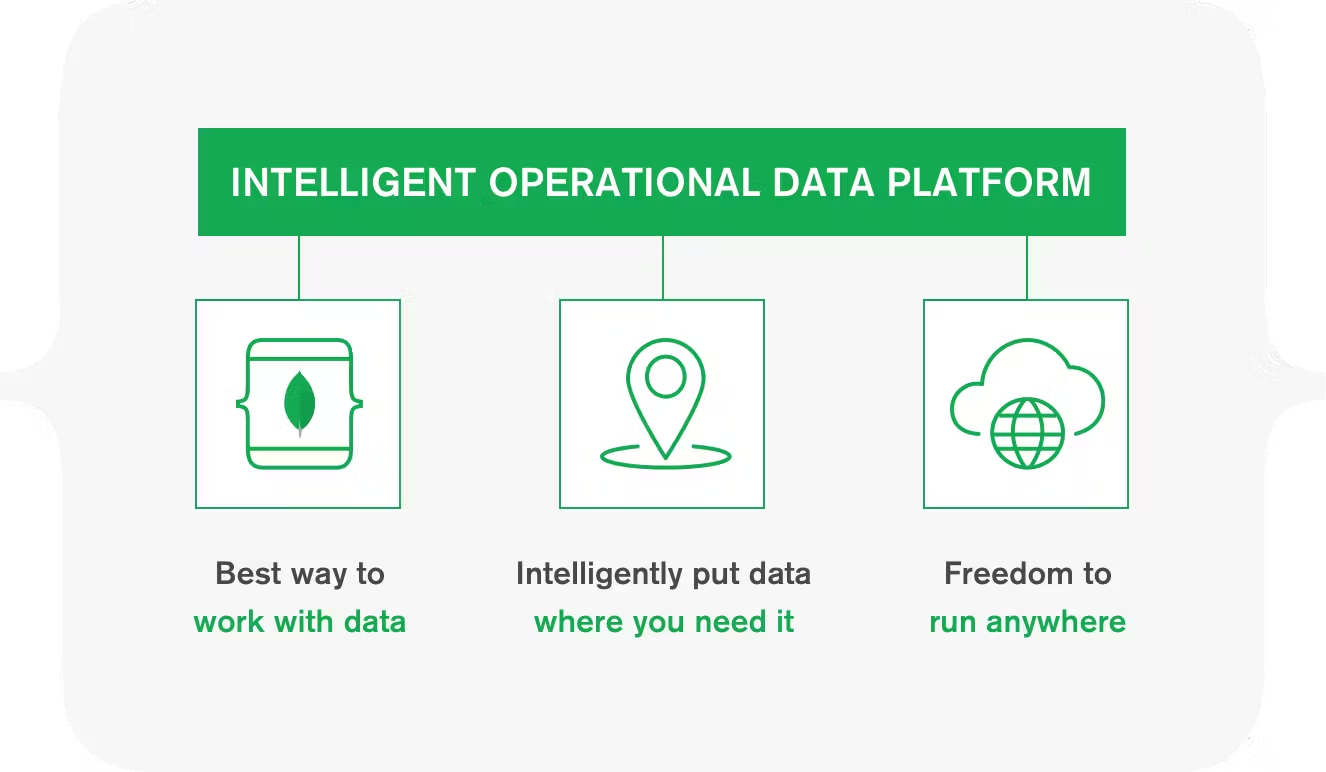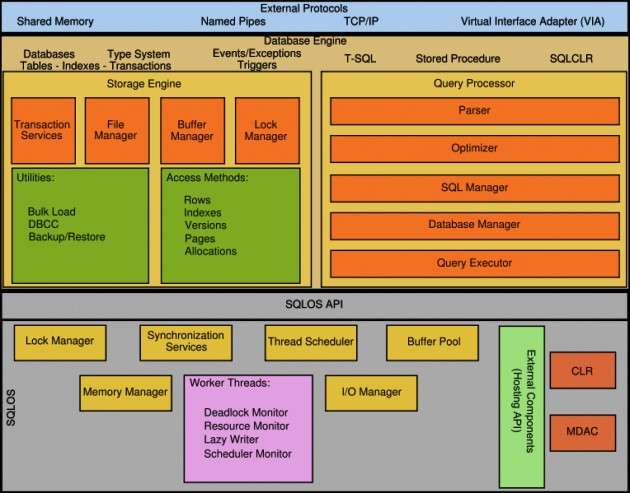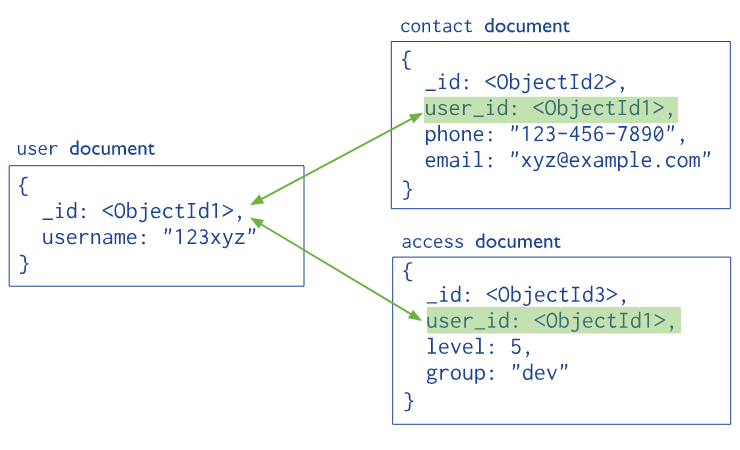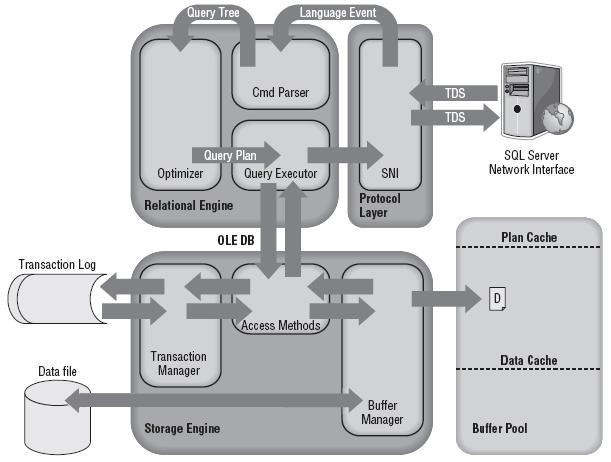While building a software application, the question arises where will you store your data and how? The traditional approach is a simple text file or CSV file which is not a good choice in today’s big data world. The solution is Database Management System(DBMS) which allows different user application programs to concurrently access the same Database.
A Database Management system(DBMS) is a simpler, easier, reliable, faster, secure, and powerful software tool for Storing, Managing, and Retrieving data. There are two types of Databases: Relational and Non-Relational Databases. An example of a Relational Database is SQL Server and a Non-Relational Database is MongoDB. We will be discussing the key differences between MongoDB vs SQL Server in this blog.
Table of Contents
What is MongoDB?
MongoDB is an open-source, cross-platform, document-oriented, and non-relational database system. MongoDB is developed by MongoDB Inc. and was first released on February 11, 2009. Its stable release is MongoDB 5.0.5 released on 6 December 2021. It is written in different programming languages like JavaScript, Python, Java, PHP, C++, C, Ruby, Perl.
MongoDB is a NoSQL Server in which data is stored in BSON (Binary JSON) documents and each document is essentially built on a key-value pair structure. As MongoDB easily stores schemaless data, make it appropriate for capturing data whose structure is not known. This document-oriented approach is designed to offer a richer experience with modern programming techniques.
Seamlessly integrate your data from MongoDB and SQL Server. Hevo elevates your data migration game with its no-code platform. Ensure seamless data migration using features like:
- Seamless integration with your desired data warehouse, such as BigQuery or Redshift.
- Transform and map data easily with drag-and-drop features.
- Real-time data migration to leverage AI/ML features of BigQuery and Synapse.
Still not sure? See how Postman, the world’s leading API platform, used Hevo to save 30-40 hours of developer efforts monthly and found a one-stop solution for all its data integration needs.
Get Started with Hevo for FreeFeatures of MongoDB
Main features of MongoDB which make it unique are:
High Performance
Data operations on MongoDB are fast and easy because of their NoSQL nature. Data can be quickly stored, manipulated, and retrieved without any compromise on data integrity.
Scalability
In the Big Data era, MongoDB data can be distributed across a cluster of machines quickly and equally, free of bulkiness. The scalability of MongoDB handles a growing amount of data capably. Sharding is a process in MongoDB used to horizontally scale the data across multiple servers when the size of data increases.
Availability
Data is highly available with MongoDB as it makes multiple copies of the same data and sends copies of data across different servers. In case any server fails, data can be retrieved from another server without delay.
Flexibility
MongoDB can easily be combined with different Database Management Systems, both SQL and NoSQL types. Document-oriented structure makes MongoDB schema dynamically flexible and different types of data can be easily stored and manipulated.
What is SQL Server?
SQL Server is a Relational Database Management System(RDBMS). It is also known as Microsoft SQL Server or sometimes as MSSQL. SQL Server is developed by Microsoft and was initially releases on April 24, 1989. Its stable release is SQL Server 2019 released on 4 November 2019. MSSQL is written in programming languages like C and C++.
Microsoft SQL Server offers a variety of editions with different functionally: Express, Enterprise, Standard, Web, Developer. Express edition is freeware for small and entry-level applications while others are licensed-based editions used for bigger projects on commercial levels based on the service required. SQL Server supports XML data type format and dynamic management views.
Features of SQL Server
Main features of SQL Server that make it highly usable are:
Cloud Database Support
Microsoft SQL Server offers editions that can be integrated with Microsoft cloud or Azure SQL with built-in security and manageability. Cloud database support makes SQL Server highly available, fast failover with minimum uptime.
Ease of Management
Microsoft SQL Servers can easily be used with Windows and Linux systems. SQL Server deployment and its management is easy with Kubernetes.
High Security
Data in SQL Server is encrypted and highly secured. Schemas and Tables can be password protected easily and can be accessed with permissions only.
End-to-End Business Data Solutions
SQL Server mainly focuses on commercial needs so it provides end-to-end business data solutions. Microsoft SQL Server offers tools for Data Administration, ETL solutions, Online Analytical Processing(OLAP), and Data Mining purposes. It additionally provides Option Reporting, Interactive Analysis, and Visual Data Exploration using SQL Server BI tools.
MongoDB vs SQL Server: Key Differences
| Base of Comparison | MongoDB | SQL Server |
| Developed by and Initial Release | Developed by MongoDB Inc. and initially released on February 11, 2009. | Developed by Microsoft Corporation and released initially on April 24, 1989. |
| Database Model | Non-Relational Database: Document-oriented (key-value structure) | Relational Database: Tables format |
| Implementation Language | JavaScript, Python, Java, PHP, C++, C, Ruby, Perl | C, C++ |
| License | Open-Source | License required |
| Data Schema | Dynamic Schema | Fixed Schema |
| Query Language | MongoDB Query Language | SQL Query Language |
| Scalability | Horizontal | Vertical |
| Map Reduce | Supports Map Reduce method. | Does not support the Map-Reduce method. |
| Joins | No | Yes |
| Transaction | MongoDB provides Multi-document ACID transactions with snapshot isolation. | MS SQL Server provides ACID transactions without snapshot isolation. |
| XML support | No | Yes |
Developed by and Initial Release
- MongoDB is developed by MongoDB Inc. and was initially released on February 11, 2009.
- SQL Server is developed by Microsoft Corporation and was initially released on April 24, 1989.
Database Model
- MongoDB is a Non-Relational Database based on a document-oriented structure that internally is based on a key-value structure.

- SQL Server is a Relational Database based on relatable structured tables with various rows and columns.

Implementation Language
MongoDB is implemented in JavaScript, Python, Java, PHP, C++, C, Ruby, Perl, C, C++ whereas SQL Server is implemented in C and C++.
License
MongoDB is an Open-Source DBMS whereas a SQL Server license is required for commercial purposes.
Data Schema
- MongoDB has a flexible dynamic schema that can easily be changed with the evolution of data, application, or business.

- SQL Server has a fixed Schema that is predefined before inserting any data. Fixed schema means schema can’t be changed as data, application, or business requirement evolves.

Take a look at the Best Data Model Schemas you can use and the methods used to implement the same in detail.
Query Language
- MongoDB uses MongoDB Query Language to query unstructured data from the database.
- SQL Server uses SQL Query Language to Create Tables, Insert, Fetch or Update data in the database.
Also, check out how to use MongoDB Query Language effectively to easily work with your data.
Scalability
- MongoDB supports Horizontal Scaling in which data is distributed across clusters. The Sharding process is used to implement horizontal scaling which results in an always-up server.
- SQL Server supports vertical scaling which is the traditional approach. In vertical scaling, physical or virtual resources are added to the hosting server of the database.
Map Reduce
- MongoDB supports a data processing algorithm for concentrating large volumes of data into aggregated results. MongoDB provides the MapReduce database command to perform map-reduce operations.
- SQL Server does not support the Map-Reduce method.
Joins
MongoDB is a non-relational database so it does not support JOINs whereas SQL Server used JOINS to retrieve data from multiple tables which are joined.
Transaction
- MongoDB provides multi-document ACID transactions (ACID is an acronym for Atomicity, Consistency, Isolation, Durability) with snapshot isolation, which ensures that the database is in a valid state after a set of database operations is executed.
- MS SQL Server also provides ACID transactions with data integrity without snapshot isolation.
XML support
- MongoDB doesn’t support XML structured documents. Documents in MongoDB are stored in BSON format.
- SQL Server provides support for XML structured data. XML support is integrated into all the components of SQL Server.
Want to learn how MongoDB compares with Snowflake? Take a look at the 7 Critical Differences between the two platforms.
You can also read more about:
- Oracle vs SQL Server
- MySQL vs SQL Server
- BigSQL vs SQL Server
- Snowflake vs SQL Server
- Redshift vs SQL Server
Conclusion
MongoDB is a database that is more advanced and capable of handling big data with dynamic schema features. SQL Server is an RDBMS that is used to manage the relational database system and offers end-to-end business data solutions. In the case of unstructured data MongoDB is a good choice. Also, MongoDB is open source which makes it readily available.
No doubt SQL Server is going strong for many years but now with the era of Big Data, MongoDB seems to have a bright future. But, that doesn’t mean SQL Server will be completely eradicated. The choice of database between MongoDB and SQL Server is completely specific to the user’s needs.
Hevo Data, a No-code Data Pipeline provides you with a consistent and reliable solution to manage data transfer between a variety of sources to destinations like MongoDB and SQL Server, with a few clicks.
Sign up for a 14-day free trial and simplify your data integration process. Check out the pricing details to understand which plan fulfills all your business needs.
Frequently Asked Questions
Q1) Is MongoDB better than SQL Server?
MongoDB is better suited for handling unstructured data, like documents or flexible schemas, while SQL Server is ideal for structured, relational data. Which is “better” depends on your specific needs: MongoDB is great for high-speed, large-scale data with flexible structure, while SQL Server is better for complex queries and transactions.
Q2) Will MongoDB replace SQL?
MongoDB won’t replace SQL because each serves different purposes. SQL databases are essential for structured, relational data, while MongoDB is preferred for unstructured or semi-structured data. They’re often used together based on the needs of the application.
Q3) What are the disadvantages of MongoDB?
MongoDB can use more storage space and may lack support for complex transactions or advanced data integrity checks. Additionally, it’s not as optimized for heavy read-and-write operations in structured data compared to SQL databases.










